Who doesn’t love a good birthday bash? But have you ever wondered where these birthday celebrations come from or why blowing out candles is a thing? As we delve into these fun facts about birthdays, we’ll unwrap some surprises that are older than your great-grandma’s secret cake recipe.
Whether you’re a summer July baby or you rock the winter chills of January, every birthday fact carries a tale as unique as each person’s life journey.
Ready to dive into the festive pool of birthday trivia? Sit tight, grab a slice of cake, and let’s venture into the captivating world of birthdays!
1. The Origin of Birthdays: Celebrations in the Past
Ever wondered when the first-ever birthday party happened? The ancient Egyptians are believed to have been the pioneers of birthday celebrations, but not in the way you might think. It wasn’t the ordinary folks celebrating their earthly births. Instead, pharaohs commemorated their “birth” as gods when they were crowned, a milestone more significant than their physical birth.
This spiritual transformation was seen as a moment of rebirth and hence a cause for celebration. If you ever time-travel back to ancient Egypt, don’t wait for a pharaoh’s actual birthdate to gift them some papyrus!
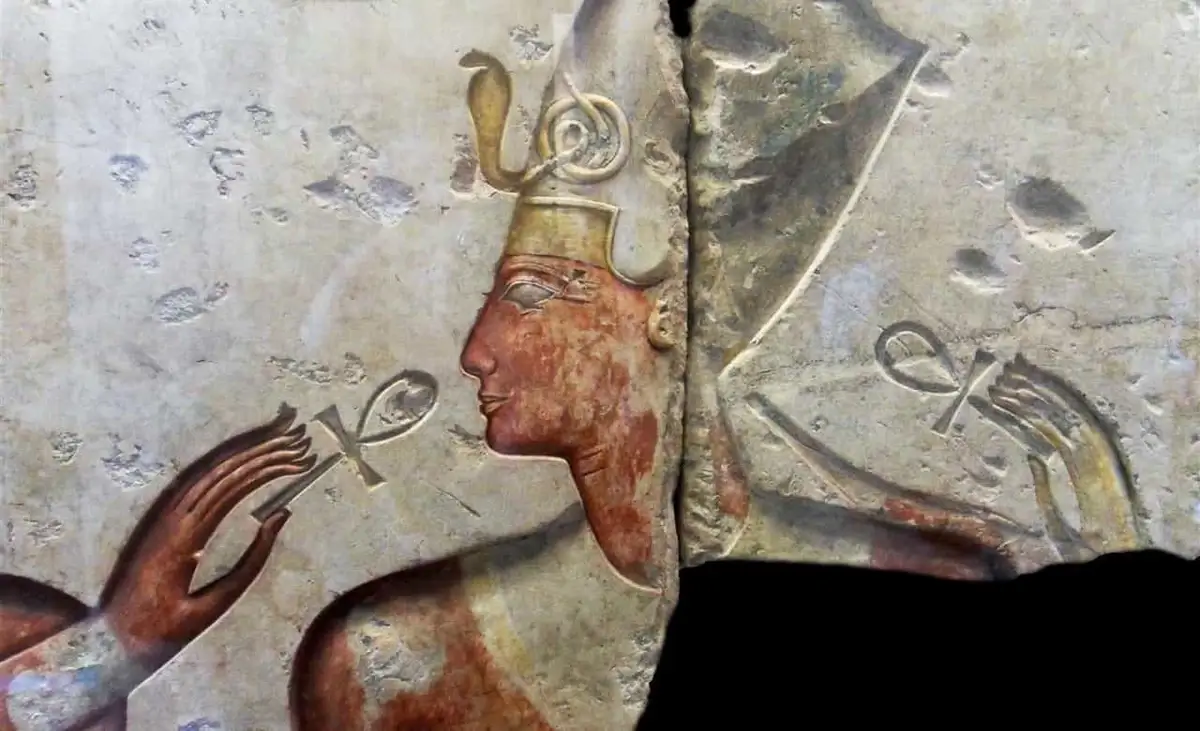
Image source: historicaleve.com
2. The Most Popular Birthday Month: Say Hi to September!
Ever felt like a lot of your friends have their birthdays in September? It’s not just your circle; September reigns supreme as the most popular birth month. Data reveals that more people are born in September than any other month. And if you dive nine months back from September, you hit a cozy winter month. Cold weather, romantic festivities? Connect the dots!
Interestingly, this trend isn’t just a current phenomenon; the bias towards September birthdays has been observed for several decades. Perhaps there’s some seasonal magic afoot!
3. Birthday Blows: The Story Behind Birthday Candles
Here comes an illuminating birthday fact! The tradition of placing candles on cakes dates back to Ancient Greece. Greeks used to place candles on round cakes, offering them to Artemis, the goddess of the moon. The candles, glowing softly, mirrored the luminescence of the moon, and their smoke was believed to carry prayers to the gods.
Fast forward, this ritual has transformed, and now, every time we blow out a birthday candle, we make a silent wish. So, while the gods may have changed, the act of wishing upon a candle remains a timeless, heartwarming tradition.

August de Richelieu / Pexels
4. The Birthday Crown: A Royal Tradition Turned Classroom Custom
In many Scandinavian countries, it’s traditional for someone celebrating their birthday to wear a special birthday crown. This custom likely has roots in ancient celebrations where the person was treated as royalty for the day. Today, this practice has found its way into classrooms around the world, where children often wear a paper crown on their special day.
Recognizing someone as “king” or “queen” for the day is a delightful way to make them feel special and cherished.
5. Cakes and Confectionaries: The Sweet History of Birthday Treats
Would you believe if I said that birthday cakes, those sweet confections we adore, date back to medieval Germany? The Germans are credited with starting the birthday celebrations tradition for children, called “Kinderfeste”. The lit candles, a practice predating the Greeks, represented the light of life and were added not just for wish-making but also as a symbol of life’s glow.
From simple bread-like cakes to the multi-layered confections of today, the evolution of birthday cakes is a delicious journey through time. After all, what’s a birthday without the iconic cake and its sugary companions?
6. Celebrating Half Birthdays: Six Months of Anticipation
While not universally practiced, the idea of celebrating half birthdays (marking the halfway point to one’s next birthday) has gained popularity in certain cultures. For children, especially those born in seasons where outdoor parties might not be feasible, half birthdays offer an additional opportunity to celebrate.
It’s a charming reminder that every day is worth celebrating, and you don’t always need to wait a full year to feel special!
7. Forgetful? You’re Not Alone: People and Missed Birthday Dates
It happens to the best of us. We’ve all been guilty of forgetting a friend’s birthday or mixing up birthday dates. In the age of digital reminders and Facebook notifications, one would think it’s impossible. Yet, surveys suggest a sizable chunk of people have forgotten their partner’s or even their own birthday!
This isn’t just a testament to our busy lives but also a nod to the overflow of information we process daily. And for those occasional slip-ups, there’s always a late birthday card that comes with a dash of humor and a sprinkle of apologies.
8. Leap Year Babies: The Unique February 29th Phenomenon
There’s something peculiar about February 29th. It’s the elusive date that pops up only once every four years, and for those born on this day, birthdays are a rare phenomenon. These fortunate (or unfortunate, depending on how you look at it) folks are termed ‘leaplings’ or ‘leapers’. Fun fact: The odds of being a leapling are about 1 in 1,461.
Being a February 29th baby has its quirks. In non-leap years, some celebrate their birthdays on February 28th, while others wait for March 1st. Yet, many just bask in the rarity and go all out every four years.

Image source: ariaatr.com
9. Born in Winter? January Birthdays and Personality Traits
Ah, January, the month that ushers in a fresh new year with chilly breezes and cozy vibes. People born in this month are said to possess unique personality traits. According to some astrological beliefs and psychology studies, they’re often determined, ambitious, and natural leaders.
Moreover, various research suggests that January babies are more likely to become doctors or debt collectors. So next time you meet a January-born, whether they’re saving lives or reminding you of dues, remember they’re just living up to their birth month potential!
10. The Birthday Song: From Classroom to Copyrights
The “Happy Birthday” song is perhaps the most recognized tune worldwide. However, the journey of this song is as fascinating as birthdays themselves. Originally penned as “Good Morning to All” by Patty Hill and her sister Mildred in the late 19th century, it later evolved into the birthday anthem we all love.
Here’s a juicy birthday trivia: Until 2016, there was a copyright claim on this song, which meant royalties had to be paid for its commercial use. Imagine paying for singing at a party! Thankfully, that’s no longer the case.
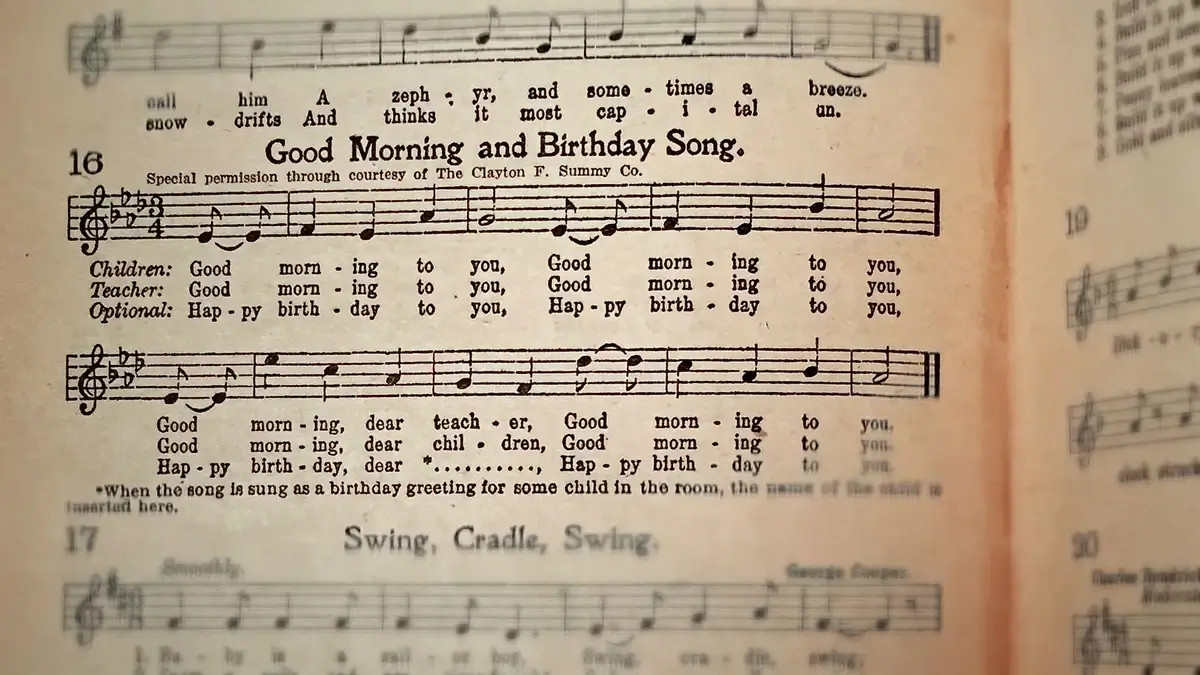
Image source: boingboing.net
11. Summertime Birthdays: The Sunshine of June and July
Summer is synonymous with sunshine, beach trips, and… birthdays? That’s right! Birthdays in June and July are all about radiant vibes. Historically, summer was a time of plenty, with ample food and festivities, making it a prime time for celebrations.
People born in these months are often associated with warmth, generosity, and an outgoing nature. Also, studies suggest that they might have a lower risk of some diseases, thanks to the abundance of vitamin D they’re exposed to right from birth. Sun-kissed and blessed, isn’t that a lovely combo?
12. Got your Golden or Grand Birthday? The Day Born Equals Age
Ever heard of the Golden or Grand Birthday? No, it’s not some fairy-tale rite of passage; it’s the year when your age matches the day you were born. For instance, if you were born on the 10th, then your Golden Birthday would be when you turn 10. It’s a once-in-a-lifetime thing and is becoming an increasingly popular celebration among many.
Interestingly, this occasion isn’t historically significant, but more of a modern-day trend. Regardless, it offers yet another fabulous reason to throw a memorable birthday bash!
13. Feeling Lucky in August? The Superstitions Around Birthday Celebrations
Every culture has its own set of superstitions, and birthdays are no exception. August, often linked with luck and fortune, has its own fair share. For instance, in some cultures, it’s believed that celebrating your birthday before the actual day can bring bad luck.
Another widespread belief is that if you reveal your wish after blowing out birthday candles, it won’t come true. Who knew that birthday celebrations could be a minefield of do’s and don’ts? Whatever the superstition, the aim remains universal: to usher in another year of health, happiness, and prosperity.
14. Romans, Celebrations, and Gods: The Tradition of Marking 50 Years
The tradition of marking significant milestones like the 50th year isn’t a modern phenomenon. Dive into ancient Rome, and you’d find that Romans held grand celebrations called “Lustratio” for a person’s 50th year. These weren’t just birthdays but purification ceremonies, thanking gods for the past and seeking blessings for the future.
While they didn’t have cakes like we do now, they did offer baked goods and sacrifices to the gods during such occasions. So when you attend a grand 50th birthday party today, you’re participating in a tradition that’s ancient and steeped in history!
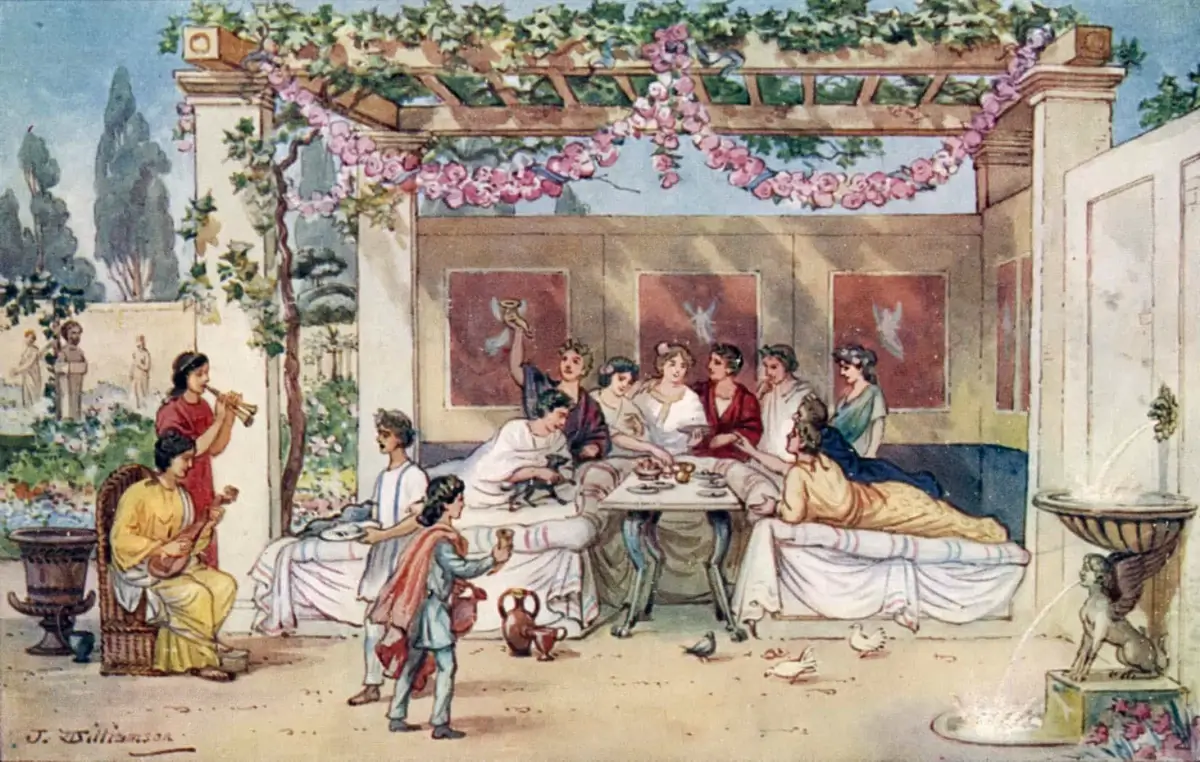
Image source: noticiasaominuto.com.br
15. The October Charm: Why It’s More than Just Halloween Month
October is often overshadowed by the spookiness of Halloween. But did you know it’s one of the most favored months for birthdays? People born in October are often believed to be charismatic and passionate. With autumn setting in, the month offers a perfect blend of mild weather and vibrant festivities.
Studies also suggest that October babies tend to live longer. Whether it’s the crisp fall air or just plain magic, October birthdays have a charm that’s hard to resist. So, amidst the pumpkins and ghosts, let’s not forget the birthday stars of this enchanting month.
16. November’s Famous Birthdays: A Month of Stars and Celebrities
November isn’t just about Thanksgiving and those delightful pre-winter vibes. It’s practically a Hollywood walk of fame in calendar form! Scarlett Johansson, Ryan Gosling, Miley Cyrus, and Mark Ruffalo are just a smattering of the many celebrities who blow out their birthday candles in this month.
Not to mention literary giants like Mark Twain and Robert Louis Stevenson who graced the world with their birth in November. So, when the autumn leaves swish beneath your feet, remember you’re treading the same month these icons first stepped into the limelight!
17. Birthday Stones: The December Turquoise and Its Significance
December babies, did you know you have a gemstone as vibrant as your birthday month? Enter Turquoise, the birthstone of December. Revered for ages for its beautiful hue and supposed protective properties, it’s no wonder this stone finds its place in countless jewelry pieces.
Historically, Turquoise has been seen as a symbol of prosperity, luck, and protection. So, the next time you’re searching for the ideal gift for a December-born, remember this gem of a fact!

Image source: southwestsilvergallery.com
18. Birthday Bumps or Smacks: A Playful Tradition
In some cultures, a playful (and sometimes painful) birthday tradition involves giving the birthday person “bumps” or “smacks” corresponding to their age, often with one extra for luck. Originating from the idea of “beating out evil spirits,” this tradition is now more about fun and camaraderie.
While it’s mostly playful, it’s always important to ensure the “celebration” remains friendly and respectful!
19. Balloons Galore: The Rise of Balloons in Birthday Celebrations
Who can picture a birthday without imagining a bunch of cheerful, bobbing balloons? These colorful air-filled delights weren’t always a birthday staple, though. The rubber balloon’s journey began in the 19th century, transforming gatherings ever since.
From their playful shapes to their ability to infuse instant festivity, balloons have floated their way into our hearts, making them an indispensable part of birthday celebrations.

Image source: wallpapers.com
20. Birthdays Around the World: How Different Countries Celebrate
Across continents and cultures, birthdays are awaited with bated breath. While you might be used to cakes and candles, in Mexico, the anticipation is for the vibrant piñata. In the streets of Nepal, the day starts with a touch of sacredness as a tika, made of yogurt and rice, graces one’s forehead.
Journey to Norway, and you’d find a sweet indulgence called “Kakebord,” where multiple cakes mark the day’s festivities. No matter the latitude or longitude, every corner of the world bursts with unique traditions, showing how we all find joy in life’s milestones.
21. Getting Older? Fascinating Psychology Behind Dreading Birthdays
While many await their birthdays with excitement, there’s a significant chunk of the population that dreads the tick of the clock. As years pile on, some feel an increasing weight of expectations and unrealized dreams. For others, it’s a reminder of the sands of time slipping away.
It’s not merely about age; it’s about societal pressures, personal milestones, and that ever-present yardstick of ‘where you should be by now.’ Yet, every year lived is a testament to strength, resilience, and the tales penned in the book of life.
22. Statistically Speaking: The Happened Birthday Paradox
Ever walked into a room and found someone sharing your birthday? You’d think it’s rare, but mathematically, with just 23 people in a room, there’s a 50% chance two individuals have the same birthday. It’s the intriguing “Birthday Paradox.”
It’s counterintuitive, given there are 365 days in a year. But the combination of possibilities between people raises the odds significantly. So the next time you’re at a party, and you find a birthday twin, remember, it’s not magic – it’s mathematics!
23. Japan’s Kanreki: Celebrating Life’s Second Start at 60
Turning 60 in Japan isn’t just about getting older; it’s about rebirth. Known as Kanreki, this age signifies a person completing the zodiac cycle, marking a fresh start. Wearing red, symbolizing infancy and beginning, the celebrant is surrounded by festivities that honor the past and welcome the future.
With Kanreki, age becomes not just a number but a testament to a life lived, lessons learned, and the promise of a new chapter waiting to be written.
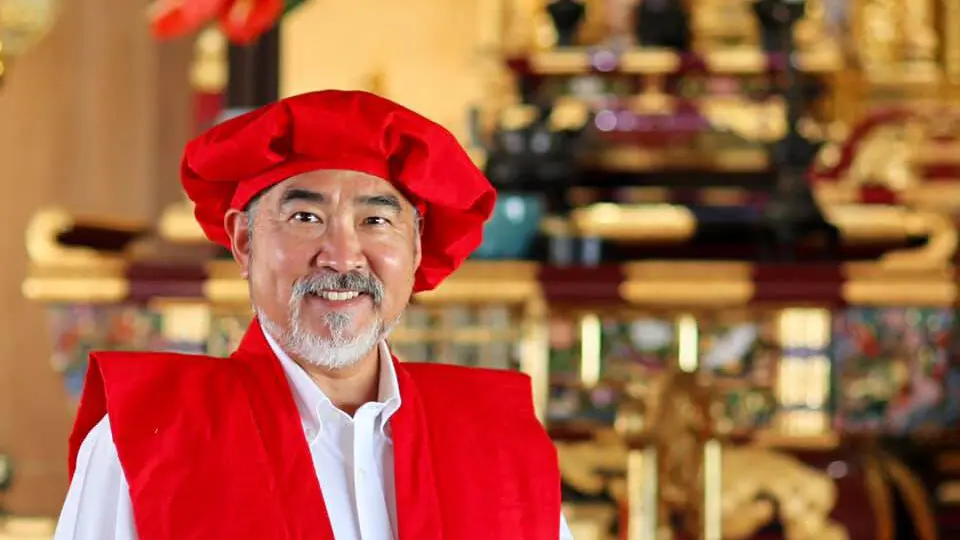
Image source: uncannyjapan.com
24. Quinceañera: Latin America’s Grand Transition to Womanhood
Across Latin America, a girl’s 15th birthday isn’t just another year added; it’s a grand celebration called the Quinceañera. Marking her transition from childhood to womanhood, this festivity is filled with religious ceremonies, elaborate dresses, and dancing.
As the young celebrant dances in her gown and tiara, surrounded by loved ones, it’s clear that this is a moment of pride, growth, and deep cultural significance. It’s a day where age-old traditions meet youthful exuberance in a beautiful blend.
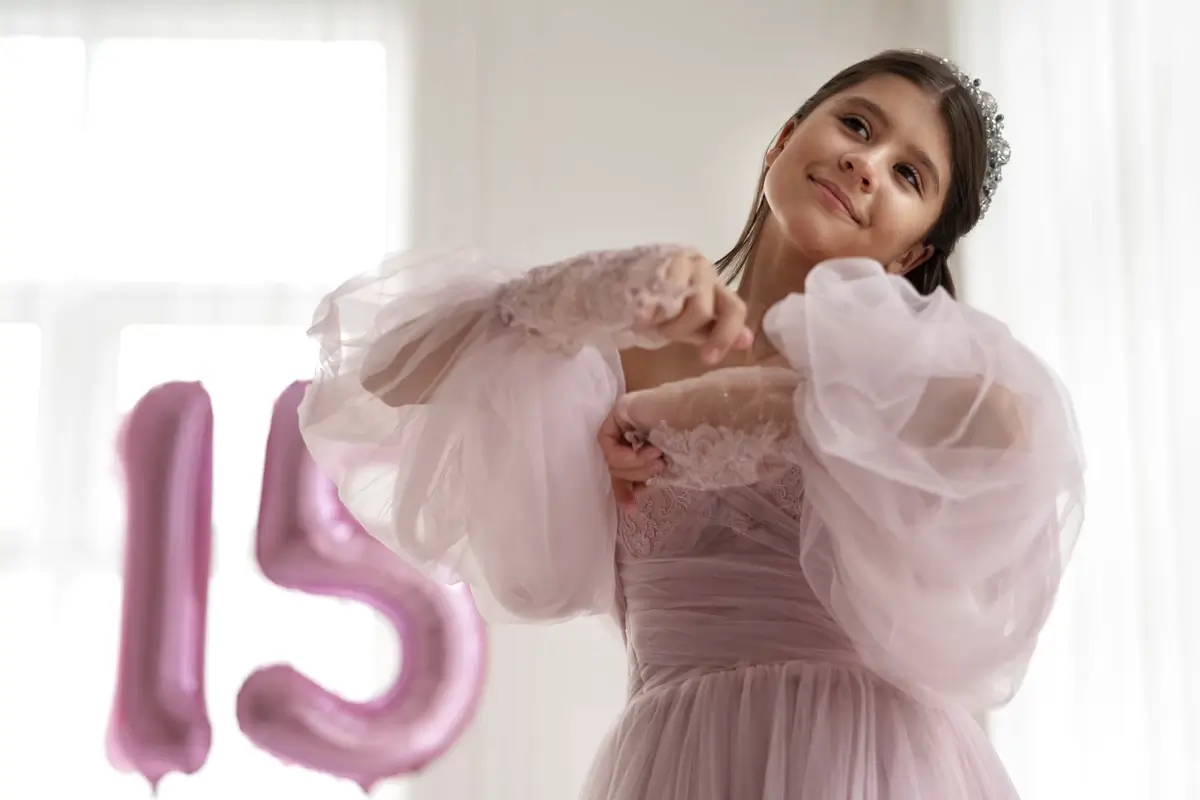
Image by Freepik
25. Gift-Giving: The Heartwarming History of Birthday Presents
Delving into history, the act of gift-giving wasn’t just about a wrapped surprise; it bore a deeper significance. In ancient times, offerings were made to protect the birthday celebrant from evil spirits. Fast forward to medieval Europe, and gifts became tokens of goodwill, fostering social bonds and showing appreciation.
As commercialization spread, the nature of gifts evolved, but the underlying sentiment remained – to express love, appreciation, and sometimes even social status. Whether it’s a handcrafted trinket or an opulent gift, the tradition of giving presents echoes the timeless human desire to connect and show affection.

Image by drobotdean / Freepik
FAQ
Why are they called birthdays?
Birthdays are termed as such because they denote the day of one’s birth. The word “birthday” comes from two words: “birth,” which refers to the act or process of being born, and “day,” signifying the specific day this event took place. Over time, the tradition of celebrating this particular day annually evolved, and it came to be known as one’s “birthday.”
What is a good quote for a birthday?
“A wish for you on your birthday, whatever you ask may you receive, whatever you seek may you find, whatever you wish may it be fulfilled on your birthday and always.” – Unknown
What’s the most special birthday?
The perception of the “most special birthday” is subjective and can vary from person to person. For some, it might be the 1st birthday, symbolizing a year of many milestones. For others, turning 18 or 21, which often denotes legal adulthood in many cultures, can be significant. Then, there are landmark birthdays like the 30th, 40th, 50th, and so on, each holding unique importance in different cultures and individual lives.
What is the most uncommon birthday ever?
February 29 is often considered the most uncommon birthday because it occurs only once every four years during a leap year. Individuals born on this day often have to celebrate on either February 28 or March 1 in non-leap years.
Who created birthday?
The tradition of celebrating birthdays has ancient origins and cannot be attributed to a single person or culture. Ancient Egyptians celebrated the birthdays of their gods, and Greeks added candles to cakes as an offering to Artemis, the goddess of the moon. The Romans were known to celebrate the birthdays of friends and families, while emperors and saints would have public holidays on their birthdays. The concept of celebrating one’s annual birth date became more widespread with time and cultural evolution.
What are birthdays also called?
Birthdays are often referred to as “anniversaries of birth,” “natal days,” or simply “anniversaries” in some cultures. They are also termed based on the number of years being celebrated, like “quinceañera” for the 15th birthday in many Latin cultures or “Kanreki” for the 60th birthday in Japan.
What is a golden birthday?
A golden birthday, also known as a “lucky birthday” or “champagne birthday,” occurs when someone turns the age of the day they were born. For instance, if you were born on the 5th of any month, your golden birthday would be when you turn 5 years old.
What are 3 lines for happy birthday?
- “On this special day, may joy wrap you like a blanket and life present you with countless blessings.”
- “Wishing you a day filled with love, laughter, and delightful surprises!”
- “May every moment of this year be as radiant as the candles on your cake.”
What can I say instead of happy birthday?
- “Best wishes on your special day!”
- “Here’s to another year of amazing memories.”
- “May your day be filled with love, joy, and countless blessings.”
- “Cheers to another trip around the sun!”
What is the most common birthday month?
Historically, based on data from various countries, September tends to rank as the month with the highest number of births. Some speculate that this is a result of New Year’s festivities and the holiday season leading to higher conception rates.





